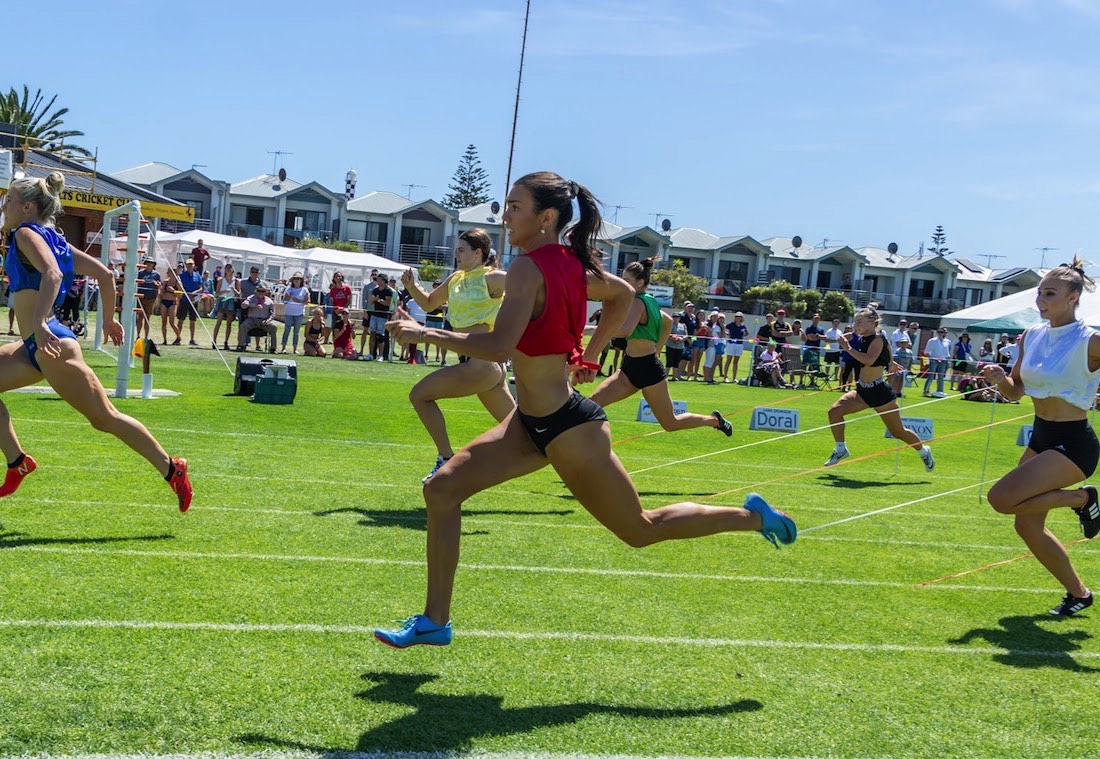Priory cognitive behavioural therapist, Lauren Povey, outlines techniques that athletes can use to stop anxiety affecting their performance
Pre-competition anxiety can have a dramatic impact on performance. This psychological state, often caused by stress and worry about a future performance, is commonly experienced by athletes at all levels.
Lauren Povey, cognitive behavioural therapist at The Priory Hospital in Chelmsford, has outlined techniques people can introduce into their training to reduce the impact anxiety has on how they perform.
Cognitive behavioural therapy (CBT) is a proven treatment that identifies the link between a person’s thoughts, behaviour and mood, helping them to become more aware of their (often unhelpful) thought patterns and adapt their dysfunctional behaviours.
Lauren said: “While you may think that your performance is just driven by external factors like your opponents, the weather or an injury, it is also influenced by what you think you can and can’t do as a result of these external factors.
“While we can’t stop our thoughts, we can change how we choose to respond to them.
Helpful tips on improving performance using CBT techniques
Challenge your performance anxiety with a thought record
After training or a competition, write down the moments when you became anxious and reflect on what you thought, how you felt and how you behaved at the time. You will begin to recognise how your anxiety is often caused by how you choose to react to external factors.
[mepr-show if=”rule: 14789″]- Write down something that happened that caused you to become anxious – was it warming up before your performance? Was it seeing your main competition?
- What did you think at the time? Did you automatically gravitate towards thoughts that you were going to perform badly or that you were going to make a mistake?
- Write down what would happen to your performance if you continue to think this way – will your anxiety cause you to be distracted in moments when you should be focused?
- Challenge the initial thoughts you had at the time – you know you’ve put in the practice and achieved this many times before
- Look at a healthier way of thinking about the situation – you may want to think: “I’m going to try my hardest to do the best I can”
- Write down an affirmation such as: “I’m great at this”
- Put an action plan in place – make a conscience effort not to dwell on your negative thoughts. You may want to think about your training, experience and skill instead
Once well-versed on the technique, you can then use it as you perform. You will start to notice when you start to ruminate over negative thoughts and get anxious, and will have the tools to adapt and find a healthier way of thinking, leaving the negative distraction behind.
Visualise and imagine
To distract and redirect yourself away from anxieties in the lead-up to big competitions, rehearse the achievement you want in your head. This will act as a non-verbal instruction to your body, so that it behaves in the way it does in your visualisation.
Just like any skill you use in your sport, it needs to be practised to be perfected.
- Find a private, calm space and make yourself comfortable
- Take a few slow and deep breaths to calm yourself
- Close your eyes
- Set the scene – make it feel like you are actually there. What venue are you practising in or competing at? What’s the colour of your opponent’s uniform? What can you hear?
- Are you worried about a skill or strategy you have been struggling with? Imagine yourself doing it perfectly and confidently
- Do you get distracted by negative thoughts? Try to imagine yourself poised, relaxed and focused
- Do you get pre-game nerves? Imagine yourself performing exactly the way you want to under the conditions which you’d normally find nerve-wrecking
- Remain in the moment for 5 to 10 minutes or until you feel relaxed
- Assure yourself that you can return to this place whenever you want or need to relax
Positive self-talk
Anxiety can cause you to think about all the mistakes you could make and believe that the worst possible scenario will happen.
Swapping this for positive self-talk can help you to break down any stress you feel:
- Prepare – as you are entering into a high-pressure situation, prepare with positive statements like: “It’s going to be tough but worth it” or “I’m going to do as well as I possibly can”
- Cope – stay positive during your performance. Use positive statements like: “Concentrate on what is going on, not on how you feel”, “This is just anxiety, I know it will pass” or “I know I’ll be fine”
- Review – give yourself praise after an achievement such as: “I did it, I’m getting better”, “I’m making progress” or “I did that well”
Even when things don’t go quite to plan, you should take the time to review – any small step that you make is progress.
Know when to get help for anxiety
If you find that your anxiety symptoms continue to affect and don’t improve with self-help strategies, it is important to visit your doctor. They will be able to determine whether you need any further professional treatment.
ENDS
About Priory Group: The Priory Group is the leading independent provider of behavioural care in the UK, caring for around 30,000 people a year for conditions including depression, anxiety, drug and alcohol addiction, eating disorders and self-harming. The Group is organised into three divisions – healthcare, education and children’s services, and adult care. The Priory Group is owned by NASDAQ-listed Acadia Healthcare, which is recognised as a global leader in behavioural health.
























